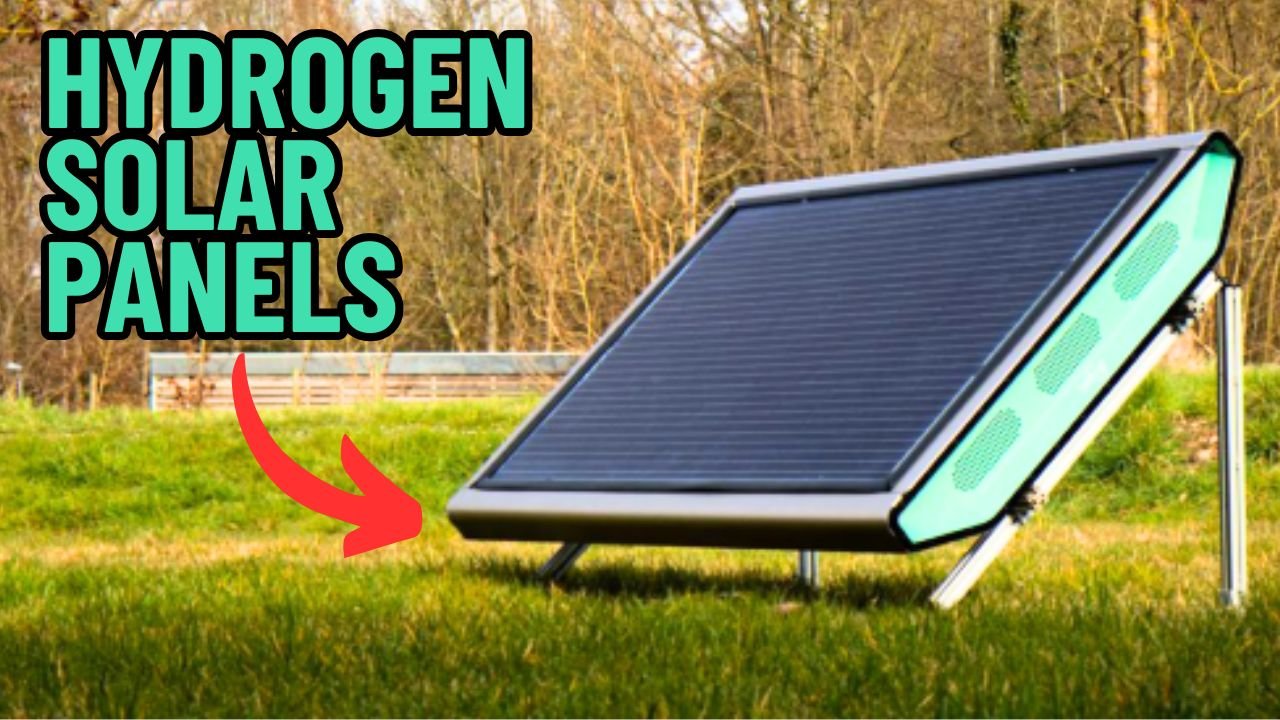Did you know there’s a city in India that operates entirely on solar energy? Homes, schools, and offices in this model city run purely on sunlight, setting an example for the rest of the country. This incredible transition highlights how far solar technology has come and now, hydrogen solar panels are taking it a step further by producing both electricity and vehicle fuel without needing a battery.
A Leap in Clean Energy Technology
With rapid advancements in technology, conventional systems are becoming less efficient and more costly. In contrast, modern innovations such as hydrogen solar panels are revolutionizing renewable energy, offering sustainable and long-term benefits. These panels promise to be a game-changer in green energy production and consumption.
What Are Hydrogen Solar Panels?
Hydrogen solar panels function similarly to traditional photovoltaic panels but are uniquely designed to generate hydrogen gas using solar energy. Unlike typical panels that use electrical cables, these are connected through gas tubes. During the day, they work like conventional panels, converting sunlight into electricity. Simultaneously, they extract moisture from the air and split it to produce hydrogen, which can generate power even at night — making 24/7 electricity production possible without the need for battery storage.
Key Components of a Hydrogen Solar Panel

Hydrogen solar panels are composed of several key elements:
- Solar Panels: The core component absorbs sunlight and converts it into electricity.
- Water Distribution System: Equipped with an electrolyzer, this component splits water into hydrogen and oxygen using solar energy.
- Fuel Cells: These cells convert the generated hydrogen into usable energy by combining it with oxygen. This process powers homes, businesses, and even vehicles.
How Do They Work?
According to the French company Solhyd, hydrogen solar panels operate through a multi-step process:
- Sunlight Absorption: Solar energy is captured and used to produce electricity and hydrogen. More sunlight equals more hydrogen generation.
- Moisture Collection: Panels absorb water vapor from the air. The collected moisture undergoes electrolysis, powered by solar energy, to produce hydrogen and oxygen.
- Gas Separation and Storage: Specialized membranes and electrodes ensure only hydrogen and oxygen are extracted, filtering out other gases. These panels use gas tubes instead of cables and can either store hydrogen at high pressure or use it directly at low pressure for various applications.
Additionally, these panels emit oxygen during the electrolysis process, enriching the environment without harming it.
Wide Range of Applications
Hydrogen solar panels can be deployed in:
- Residential and commercial buildings
- Agriculture
- Transportation
- Cooking and heating
- Off-grid rural areas
- Large-scale power plants
Given their efficiency and sustainability, hydrogen panels could soon reduce our dependence on fossil fuels and lead a renewable revolution.
Advantages of Hydrogen Solar Panels
These panels offer numerous benefits:
- Dual Output: Generate both electricity and hydrogen fuel using sunlight and atmospheric moisture.
- High Yield: A 2-kW panel can produce up to 200 liters of hydrogen with 40% efficiency. The remaining 60% of energy is released as heat, which can be used for cooking or warming spaces in cold regions.
- Environmentally Friendly: Reduces air pollution and combats global warming.
- Battery-Free Operation: Provides round-the-clock energy production without the need for battery banks.
- Clean Fuel for Vehicles: Hydrogen from these panels can power future hydrogen-fueled vehicles, supporting energy independence.
Challenges and Limitations
Despite their benefits, hydrogen solar panels face some drawbacks:
- Lower Efficiency: These panels are less efficient than conventional solar panels in electricity generation.
- Fuel Storage Risks: Hydrogen is highly flammable and requires robust, costly storage systems.
- Complex Transport and Maintenance: Transporting hydrogen is difficult and expensive, demanding high safety standards.
- Environmental Impact of Hydrogen Extraction: Some methods, like steam methane reforming, emit pollutants.
- High Costs: Initial installation and conversion from regular solar panels require significant investment in specialized equipment and safety infrastructure.
Converting Traditional Panels into Hydrogen Solar Panels
Existing solar setups can be upgraded with:
- Hydrogen storage tanks
- Fuel cell-based electricity generators
- High-grade safety systems due to hydrogen’s flammability
This conversion process is complex and expensive but can transform standard solar panels into dual-purpose energy solutions.
Companies Involved in Hydrogen Solar Panel Production
Several Indian and international firms are leading the charge:
Indian Companies:
- Reliance Industries Limited
- Adani Power
- NTPC India
- Indian Oil Corporation
- L&T Limited
- GAIL India
Research institutions like IIT Bombay, IIC Bangalore, and the National Institute of Solar Energy (NISE) are also conducting active R&D in this field.
International Brands:
- Solhyd (France): Aims to export panels globally by 2026.
- S To Zen (USA)
- Sun Hydrogen (Canada)
Market Price and Future Prospects in India
India’s hydrogen solar panel strategy, established in 2022, aims to replace fossil fuels with hydrogen by 2030. With growing renewable energy capacity, India could emerge as a major global producer and exporter of green hydrogen.
Prices vary depending on brand and specifications. A 1-kW Solhyd hydrogen panel may cost between ₹30,000 to ₹75,000, while Indian variants could range from ₹70,000 to ₹1.5 lakh. Market availability is expected by 2025–26.
As research advances and safer hydrogen storage methods are developed, these panels are likely to become more mainstream. Their potential to fuel vehicles and reduce dependence on polluting fossil fuels positions hydrogen solar panels as a foundational pillar of a greener future.

